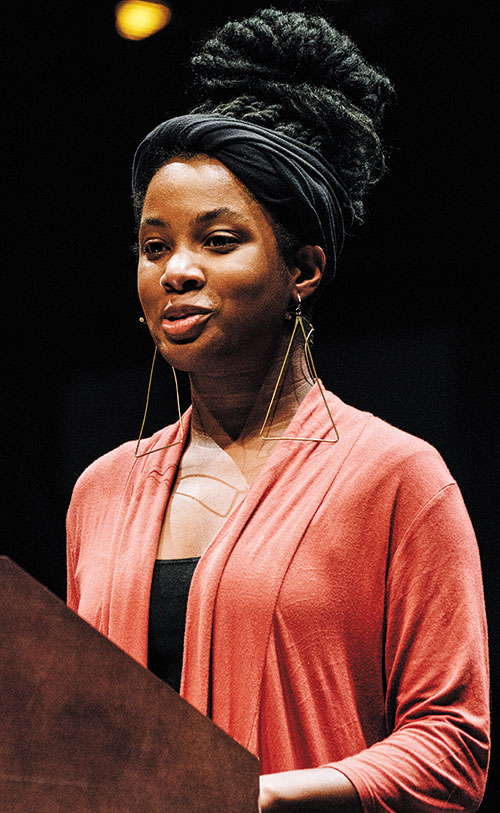100th anniversary milestone celebrated
To honor the 100th anniversary of the graduation of Rachel Flowers—Messiah’s first African-American student—in 1918, the College celebrated this historic milestone in September. The three-day event, “Remembering, Rejoicing, Reflecting: A Centennial Celebration of Rachel Helen Flowers, 1918-2018,” included a dinner, jazz performance, lecture and exhibits.
“We remember Rachel, because to remember is to love, and to love is to remember,” said Bernardo Michael, professor and co-chair of the Department of History, who served as co-chair of the Rachel Flowers Centennial Committee. “This project is an act of love that yearns for racial reconciliation.”
Her photo previously misidentified, Flowers—and her importance in Messiah’s history—was discovered nearly a decade ago by Mollie Gunnoe ’12, a student research assistant for Hierald Osorto ’06, director of multicultural programs at the time.
“While Rachel left behind only faint traces in the historical record, her silence has spoken to us powerfully,” said Michael.
Christina Thomas ’14, fellow co-chair of the Flowers committee, returned to campus to give the keynote lecture for the celebration. In 2009, she worked for Michael in the Office of Diversity Affairs.
For Thomas, the study of Flowers turned into much more than a student research project. “What started as a small project grew into a larger research project, she said. “Simultaneously, my love for African-American history grew even stronger.”
After Messiah, she continued studying Flowers, receiving a master’s in history from the University of North Carolina at Charlotte. There, she won the Patterson Prize for best graduate paper, titled “Our Children’s Lives Forever: The Educational Activism of the Sawyer-Flowers-Wilson Family, 1866-1988.” Now a doctoral student at Johns Hopkins University, she is studying 19th- and 20th-century U.S. and African-American history.
“It was Christina who showed us that the fragments we discovered in the archive tell us a larger story that could be explored through advanced graduate work,” said Michael. “This is the message from the past that can be a lamp unto our feet and light unto our path.”
—Staff report
